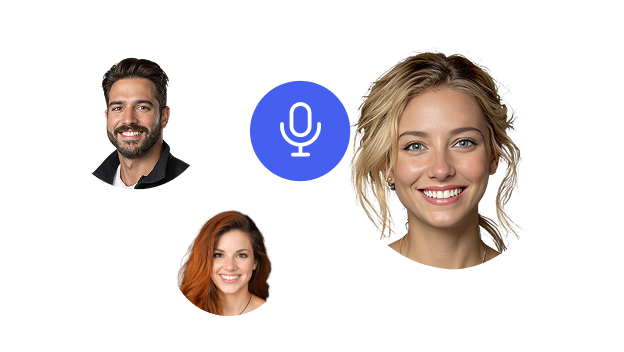Podcasts have rapidly grown into one of the most popular content mediums, with an ocean of podcast episodes available on platforms like Spotify, Apple Podcasts, and more. However, sometimes, for a variety of reasons, individuals may need podcast transcripts - text versions of the podcast audio. This article explores how to access and create these transcripts, the benefits they provide, and the best tools for the job.
Can you get podcast transcripts?
Absolutely! Most podcast hosts or producers provide podcast transcripts for their episodes, often found in the show notes. If not, numerous transcription services are available to transcribe the podcast audio into a text file, which can then be used for various purposes.
How to do a podcast transcript?
Creating a podcast transcript involves converting the audio file of a podcast episode into a text format. This process can either be manual, where someone physically transcribes the content, or automatic, where transcription software using speech-to-text technology is used.
For manual transcription, the process involves listening to the podcast audio and typing what is said. For automatic transcription, there are many transcription tools, both paid and free, which can transcribe the audio content. These tools often provide a transcription feature that allows you to upload an audio or video file, and the software will generate an episode transcript.
When transcribing, it's important to include timestamps for easier navigation and understandability, and consider adding subtitles or closed captioning for accessibility. It's also possible to convert the transcript into an SRT file format, widely used for captions and subtitles.
Where can I listen to podcast transcripts?
Podcast transcripts are primarily meant for reading. However, text-to-speech tools can convert these transcripts into audio content. Alternatively, you can look for video versions of podcasts with closed captioning on platforms like YouTube.
How do I get free podcast transcripts?
Some podcasts provide free transcripts on their websites or in their show notes. For podcasts without provided transcripts, free transcription tools can be used, though they may lack some features or have usage limits compared to paid options. These tools convert the podcast audio into a text document, providing an easy and cost-effective way to get podcast transcripts.
Who reads podcasts transcripts?
Podcast transcripts are useful for a variety of individuals. For those with hearing impairments, transcripts provide a way to engage with the podcast content. They also help non-native speakers, offering a text version to reference for clarity. Transcripts are also beneficial for SEO, as they make the content more searchable on search engines, and can be repurposed into social media posts or blog posts.
What are the benefits of podcast transcripts?
Podcast transcripts offer numerous benefits:
- Accessibility: Transcripts allow those with hearing impairments to access podcast content.
- SEO: Transcripts make the podcast content searchable by search engines, boosting visibility and discoverability.
- Repurpose content: Transcripts can be repurposed into blog posts, social media posts, infographics, and more, providing more value from a single episode.
- Enhance comprehension: For non-native speakers or complex topics, transcripts can help listeners understand the content more easily.
Top 8 Transcription Software or Apps
- Speechify Voice Over: Speechify Voice Over is a powerful voice over app that runs in your browser. with the power of AI, it brings surprising features made simple for anyone to use. Try it free, today!
- Descript: Descript offers high-quality automatic transcription. It also provides a unique editing feature that lets you edit the audio by modifying the text.
- Rev: Offers both automatic and manual transcription services with competitive pricing. They also provide an API for developers.
- Trint: Trint uses AI to provide automatic transcription, with options to edit and export the transcript.
- Temi: Temi offers fast, automatic transcription with a simple interface and reasonable pricing.
- Sonix: Sonix offers high-quality transcription, translation, and subtitling services. It provides timestamps and supports multiple languages.
- Otter.ai: Otter.ai offers real-time transcription, perfect for live shows or interviews. It integrates with Zoom for easy transcription of meetings and webinars.
- Scribie: Scribie offers both automatic and manual transcription with the option to add timestamps and speaker tracking.
- Happy Scribe: Happy Scribe offers a high-quality podcast transcription service with multilingual support.
Podcast transcripts are an invaluable resource in the podcasting world, not just for accessibility, but also for SEO and repurposing content. Whether you're a listener trying to catch every word of your best podcast, or a producer looking to maximize your podcast content's reach, podcast transcripts are your go-to tool.





